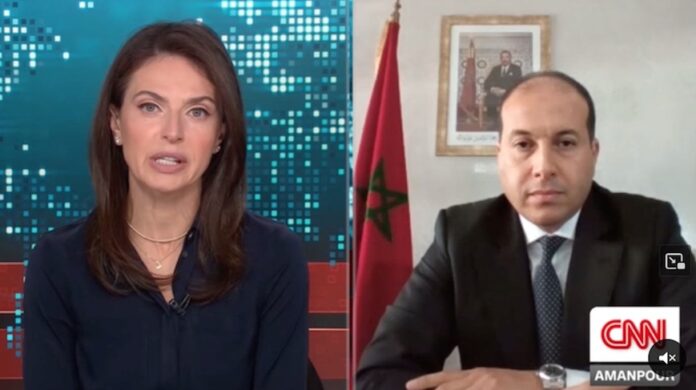Speaking on CNN, Rachid El Khalfi, a senior official and current spokesperson for Morocco’s Interior Ministry, defended the government’s handling of recent youth-led protests across several cities in the country. He described the unrest as a temporary wave of tension that has since been brought under control.
Pressed by the American anchor, El Khalfi emphasized the need to view the events within Morocco’s broader social and political evolution. He pointed out that the country has significantly expanded civil liberties in recent years, including the right to protest. On average, he said, Morocco sees nearly 600 demonstrations each month—something he believes reflects a growing democratic maturity and a culture of open, responsible dissent.
El Khalfi didn’t shy away from addressing the underlying challenges. He acknowledged the persistently high youth unemployment rate and noted that over half the population is under 35. However, he dismissed the notion that these statistics signal a failure of government policy. Instead, he framed them as indicators of a tough economic environment that naturally gives rise to valid grievances. He argued that the protests should be seen not as a threat, but as proof of an engaged society. According to him, the state is not only paying attention but is actively working to address misunderstandings and correct what can be improved.
When questioned about the deadly incidents in Leqliaa—where three people lost their lives—El Khalfi described the situation as one of self-defense. He maintained that law enforcement officers faced direct threats, and he confirmed that investigations are underway to establish the full circumstances. He was firm in stating that any use of force must remain within the framework of the rule of law. Whether it’s police officers or violent demonstrators, he insisted, everyone will be held accountable in equal measure.
As for the political dimension of the movement, El Khalfi made it clear he was speaking strictly in his capacity as a security official. He rejected any suggestion that the situation had spiraled out of control and described the protests as now contained. Early restrictions on public gatherings, he explained, were due to the lack of clearly identified organizers. Once that changed, authorities responded with more flexibility.
Addressing concerns about broader instability, El Khalfi sought to reassure both domestic and international audiences. Morocco, he said, is not starting from scratch. The country has already implemented a series of active public policies and remains committed to safeguarding human dignity and promoting social justice—particularly for its younger generations.





